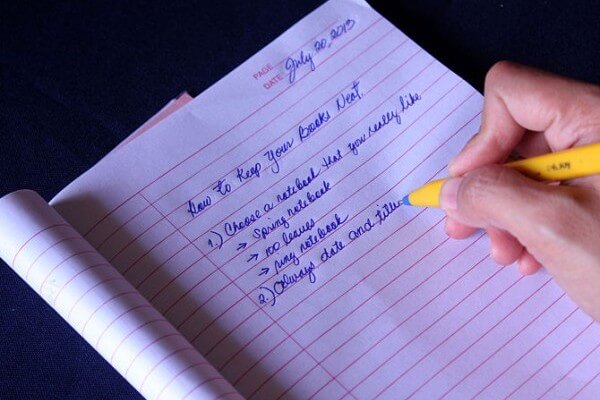It’s a cold world out there. Whether you’re studying to become a doctor or trying to survive freshman year, college is an exhausting, competitive place. Instead of shackling your grade to that enormous final assignment, here are some foolproof ways to chip away at your professor’s impregnable armor. Don’t be afraid of that sesquipedalian vocabulary and overall sophisticated manner—beneath his tweed jacket is a living, breathing, human just like you or I. Barring the likes of Robert Langdon, college professors are not on an intellectual quest to save the world from an ancient brotherhood. No, their mission is quite different. To educate. With this advice, you can help them reach this goal, bolstering your grade and your mind along the way. Take it from the experts: the little things matter.
Be Inquisitive

Dr. Tery Combs, a social work professor at the University of Tennessee believes asking questions cannot be stressed enough. “Whether it is a misunderstanding of content or an opposing opinion, this participation assumes that you have been listening in class and that you have a valid question.” She even holds that if you aren’t comfortable speaking in front of an audience, you can always speak to the professor if he/she remains in the classroom after the lesson.
Be a secret agent: 007 teacher’s favorite.

Case study science professor Dr. Clyde Heried from the University of Buffalo advised that professors are significantly more likely to notice students who sit in the front of the class. “Students stand out especially if they make eye contact and look like they are intensely interested in the class material,” he said. Here we have one huge, surprising takeaway: eye contact. It shows you are not intimidated by the instructor and are genuinely curious about the lecture.
Be memorable from day one.

Author and educator Marc Rowe feels that no matter what people say, first impressions are crucial. “Making a good impression is extremely important not only for grading, but also for developing relationships with professors that can act as mentors, advisors, or networking connections later in your academic career,” Rowe said. A semester may be 18 weeks long, but never underestimate the value of week one. It may lack content, but it is pivotal in developing your relationship.
Be early? Be Late? Above all, communicate.

Most professors agree that showing up a minute or two late to class doesn’t harm your standing, but it certainly doesn’t help. On the flipside, University of Richmond marketing professor Dr. Nancey Ridgeway revealed that being a little early allows you to get a seat near the front of a classroom.
Unfortunately sometimes we are forced into tardiness because of a scheduling conflict. Marc Rowe advised,“If this is the case, make an appointment with the professor to discuss the situation.” Don’t just send an email, a face-to-face meeting shows you genuinely care about respecting the professor.
Be present.

“In a large class setting, two students in the back row spent the entire class reading magazines. I never saw their eyes,” Professor Combs said. “Do you think I was positively disposed to round their grade averages up or down?”
Even if you think you’re hiding among a crowd of peers, more often than not the professor can still see what you are doing out there. So be mindful of any letting out any groans about your favorite team losing yesterday—he doesn’t know you’re a Red Sox fan.
Be attractive…Not you, your work.

“Nothing gets my attention more than a paper with typos, misspellings and other signs of sloppiness—and that is attention you do not want,” Combs said. Moral of the story: Always proofread your work, not just on essays, but for homework and quizzes as well. Those of us endowed with horrendous chicken scratch handwriting know that, regardless of what the professor says, neatness does count. Make the extra effort to present your most legible work on each assignment. Remember what we said about impressions—do you want to annoy your teacher by forcing her to decode your scribbles while grading? Definitely not, so type the paper whenever you can.
Be ready to run an extra mile.

By setting aside time in their busy schedules for student office hours, professors are signaling that they truly care about your education. Combs brings up yet another slice of wisdom, cautioning to bring specific questions to office hours. “This will keep you on track and demonstrate that you value his/her time,” he said. If you want to further reveal your interest in the topic, take advantage of any extra chance to learn and interact with the teacher. That optional field trip to the art museum? Go. It will benefit your mind and your grade.
Be a fan favorite.

Being an expert in marketing, Dr. Ridgeway uses an anecdote to depict one student’s masterful self-presentation. “A girl e-mailed me before classes started and asked to pick up a syllabus early so she could start reading. When she entered my office, she looked me in the eye, introduced herself, and shook my hand. In class the first day, she sat in the front row, made eye contact, and smiled, seeming to acknowledge how hard I was working to keep the class interested. This continued throughout the class. I later found a job for this student at one of the world’s largest advertising agencies and am glad to call her my friend today,” Ridgeway said. Take notes from this one, my fellow peers. She managed to compile the advice of all four of these experts without even knowing it. Bravo, chica. Bravo.



















